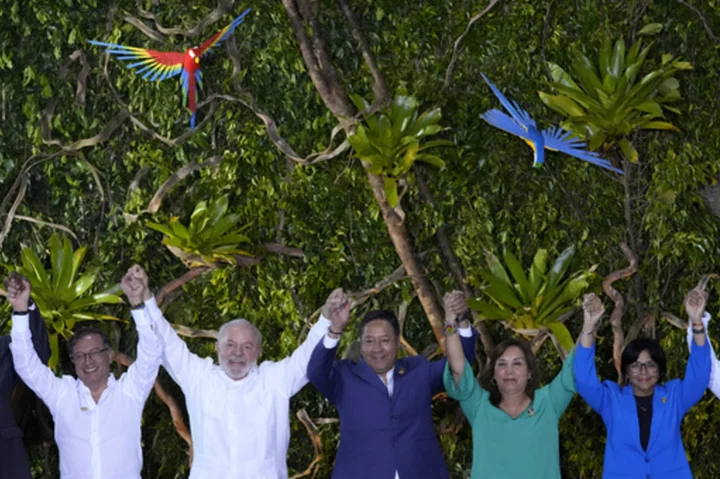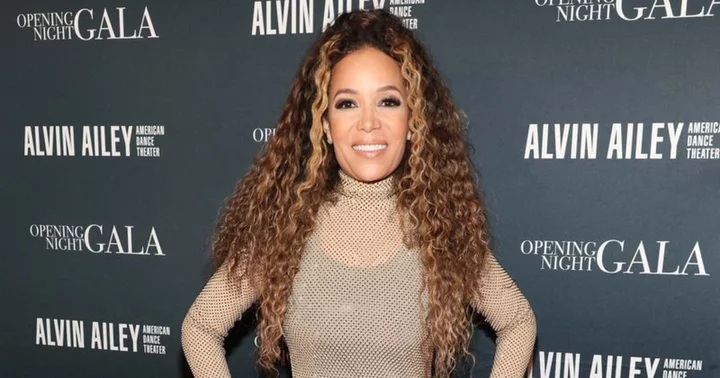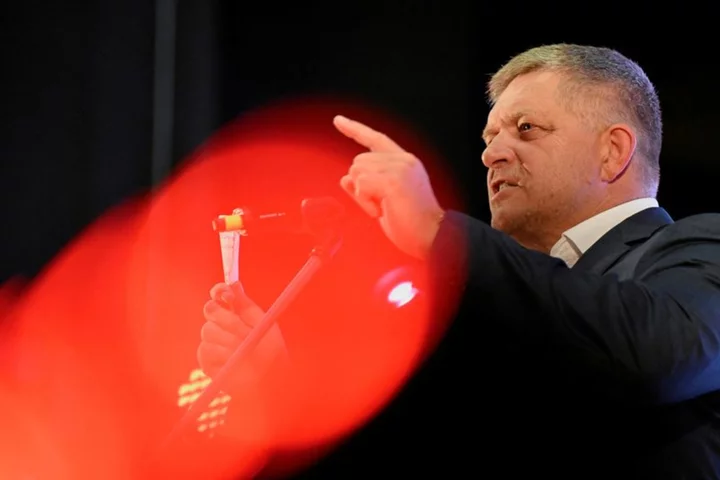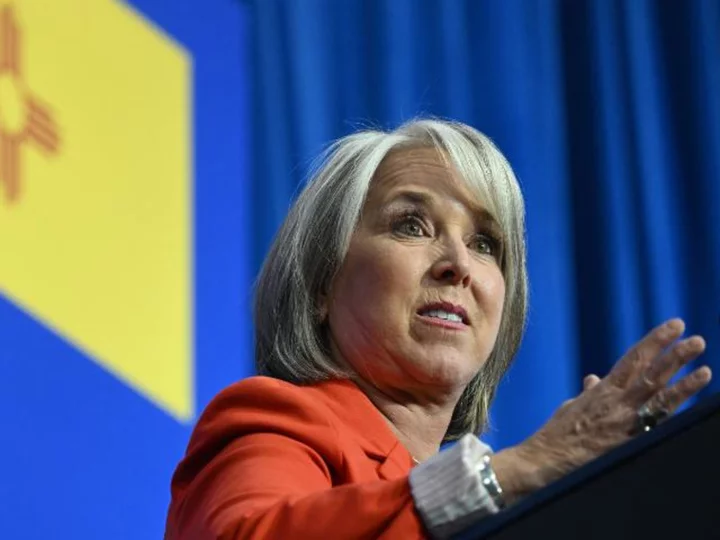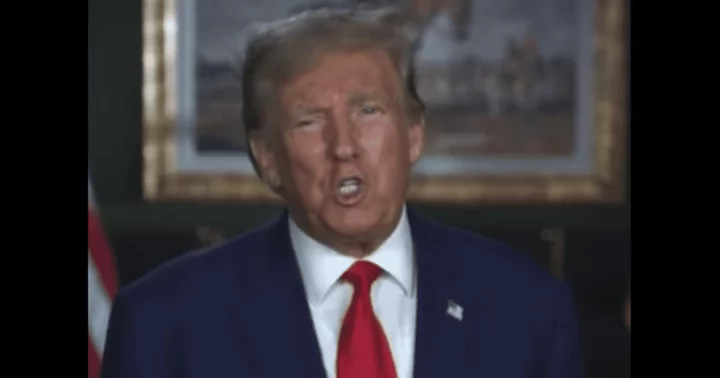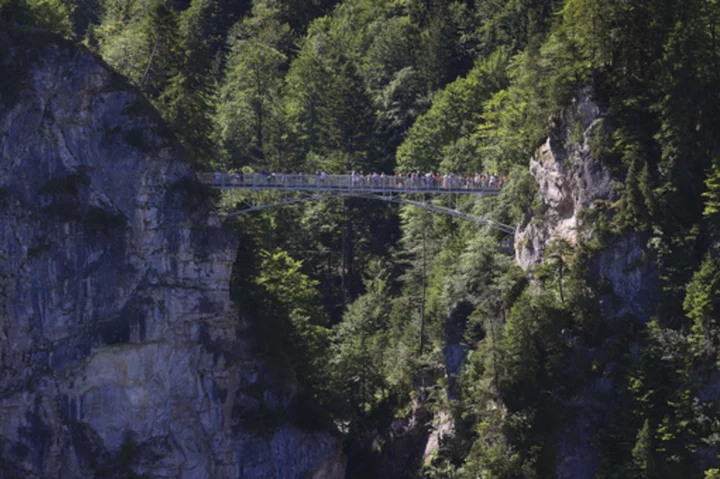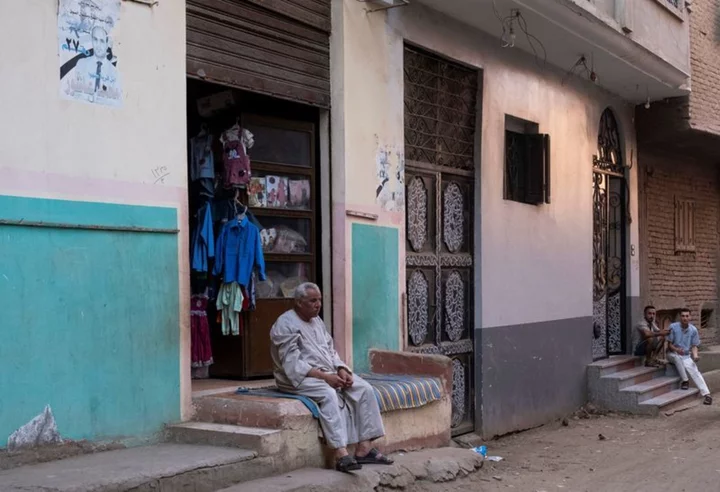BELEM, Brazil (AP) — Representatives of rainforest nations in Africa and Southeast Asia joined a summit of Amazon countries in Brazil on Wednesday to begin charting a common course for preservation of the ecologically diverse regions that are crucial in countering climate change.
On Tuesday, leaders and ministers from eight Amazonian nations signed a declaration that laid out plans to drive economic development in their countries while preventing the Amazon’s ongoing demise “from reaching a point of no return.” Some scientists say that when 20% to 25% of the forest is destroyed, rainfall will dramatically decline, transforming more than half of the rainforest to tropical savannah, with immense biodiversity loss.
The eight nations — Bolivia, Brazil, Colombia, Ecuador, Guyana, Peru, Suriname and Venezuela — are members of the newly revived Amazon Cooperation Treaty Organization, or ACTO, who hope that a united front will give them a major voice in global environment talks ahead of the COP 28 climate conference in November.
Joining the summit Wednesday were the presidents of the Republic of Congo and the Democratic Republic of Congo, an emissary from Indonesia’s president, and France’s ambassador to Brazil, representing the Amazonian territory of French Guiana. The president of Norway, the largest contributor to Brazil’s Amazon Fund for sustainable development, also attended.
Presidents of Bolivia and Peru did not attend the meeting on Wednesday. Colombia's President Gustavo Petro remained at his hotel in Belem taking calls, after revelations Tuesday that a rebel group, the National Liberation Army, had been plotting to assasinate the nation's attorney general, according to a source from the presidency's office, who declined to be named because he wasn't authorized to speak publicly.
Several environmental groups had expressed frustration with Tuesday’s joint declaration, saying it was largely a compilation of good intentions with little in the way of concrete goals and timeframes. However, the region’s largest Indigenous organization praised the inclusion of two of its main demands.
The summit reinforces Lula’s strategy to leverage global concern for the Amazon’s preservation. Emboldened by a 42% drop in deforestation during his first seven months in office, he has sought international financial support for forest protection.
Speaking to reporters after Wednesday's meeting, Brazilian President Luiz Inácio Lula da Silva railed against “protectionist measures poorly disguised as environmental concern” that restrict imports from developing nations, and said developed nations must fulfill their pledges to provide monetary support for forest protection.
“Nature, which industrial development polluted for 200 years, needs them to pay their part so we can revive part of what was ruined. Nature is in need of money," Lula said.
“Anywhere you go in the world, people talk about the Amazon. This meeting is the Amazon talking to the world, telling the world what we need," Lula said.
The Amazon stretches across an area twice the size of India. Two-thirds of it lies in Brazil, with seven other countries and the territory of French Guiana sharing the remaining third. Governments have historically viewed it as an area to be colonized and exploited, with little regard for sustainability or the rights of its Indigenous peoples.
All the Amazon countries have ratified the Paris climate accord, which requires signatories to set targets for reducing greenhouse gas emissions. But cross-border cooperation has historically been scant, undermined by low trust, ideological differences and the lack of government presence.
The members of ACTO — convening for only the fourth time in the organization’s 45-year existence — demonstrated Tuesday they aren’t fully aligned on key issues.
Forest protection commitments have been uneven. And their joint declaration didn’t include a shared commitment to zero deforestation by 2030, as some had hoped. Brazil and Colombia have already made that commitment.
The Climate Observatory, a network of dozens of environmental and social groups, as well as Greenpeace and The Nature Conservancy lamented the lack of concrete pledges in the declaration.
“The 113 operating paragraphs of the declaration have the merit of reviving the forgotten ACTO and recognize that the biome is reaching a point of no return, but doesn't offer practical solutions or a calendar of actions to avoid it,” the Climate Observatory said in a statement.
Colombian Indigenous leader Fany Kuiru, from the Coordinating Body of Indigenous Organizations of the Amazon Basin, praised the declaration for fulfilling two of their primary requests — an acknowledgment of their rights to traditional territories and the establishment of a mechanism for the formal participation of Indigenous peoples within ACTO.
Bruna Santos, director of the Brazil Institute at the Woodrow Wilson Center, said the summit demonstrated “an effort to treat the Amazon as a regional agenda” but that it also highlighted ambiguities in the priorities of Brazil's government, including with respect to oil exploration.
Colombia's president forcefully about the hypocrisy of pushing for Amazon preservation while pursuing oil, equating it to betting “on death and destroying life.
Lula has refrained from taking a definitive stance on oil, citing the decision as a technical matter. Meanwhile, Brazil’s state-run Petrobras company has been seeking to explore for oil near the mouth of the Amazon River.
Despite disagreements, there were signs of increased regional cooperation and growing global recognition of the Amazon’s importance in arresting climate change. A collective voice — along with funneling more money into ACTO — could help it serve as the region's representative on the global stage ahead of the COP climate conference, leaders said.
The president of the upcoming COP conference, Sultan Ahmed al-Jaber, met with Lula in Belem on Wednesday, before addressing assembled officials.
“We will build on the experience and the lessons that the Amazon Cooperation Treaty Organization and Indigenous Peoples can teach us," al-Jaber said.
___
Associated Press climate and environmental coverage receives support from several private foundations. See more about AP’s climate initiative here. The AP is solely responsible for all content.

